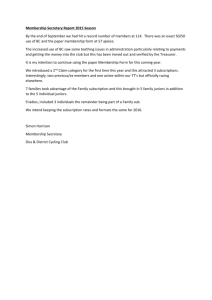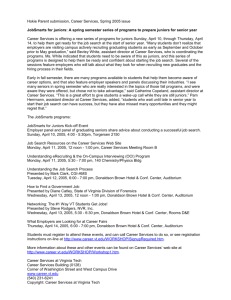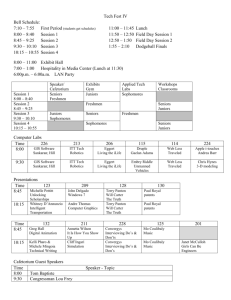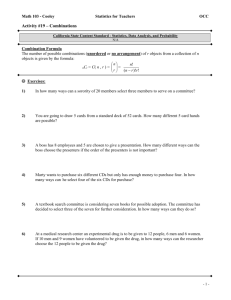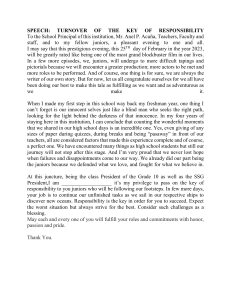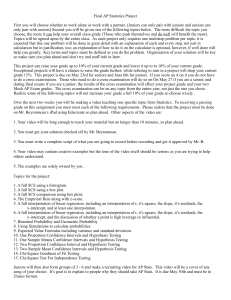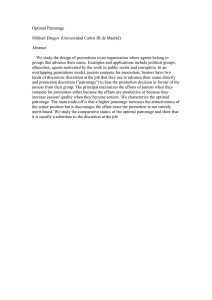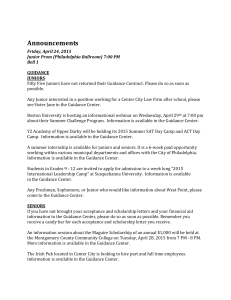Explanation of School Years and Key Stages
advertisement
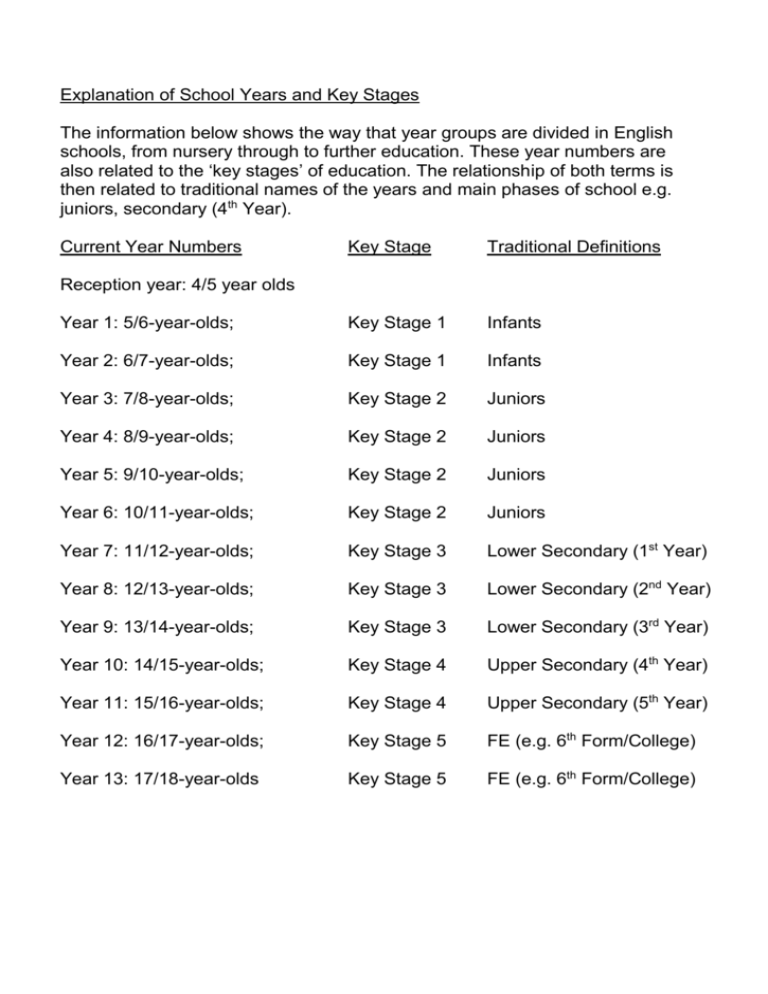
Explanation of School Years and Key Stages The information below shows the way that year groups are divided in English schools, from nursery through to further education. These year numbers are also related to the ‘key stages’ of education. The relationship of both terms is then related to traditional names of the years and main phases of school e.g. juniors, secondary (4th Year). Current Year Numbers Key Stage Traditional Definitions Year 1: 5/6-year-olds; Key Stage 1 Infants Year 2: 6/7-year-olds; Key Stage 1 Infants Year 3: 7/8-year-olds; Key Stage 2 Juniors Year 4: 8/9-year-olds; Key Stage 2 Juniors Year 5: 9/10-year-olds; Key Stage 2 Juniors Year 6: 10/11-year-olds; Key Stage 2 Juniors Year 7: 11/12-year-olds; Key Stage 3 Lower Secondary (1st Year) Year 8: 12/13-year-olds; Key Stage 3 Lower Secondary (2nd Year) Year 9: 13/14-year-olds; Key Stage 3 Lower Secondary (3rd Year) Year 10: 14/15-year-olds; Key Stage 4 Upper Secondary (4th Year) Year 11: 15/16-year-olds; Key Stage 4 Upper Secondary (5th Year) Year 12: 16/17-year-olds; Key Stage 5 FE (e.g. 6th Form/College) Year 13: 17/18-year-olds Key Stage 5 FE (e.g. 6th Form/College) Reception year: 4/5 year olds
